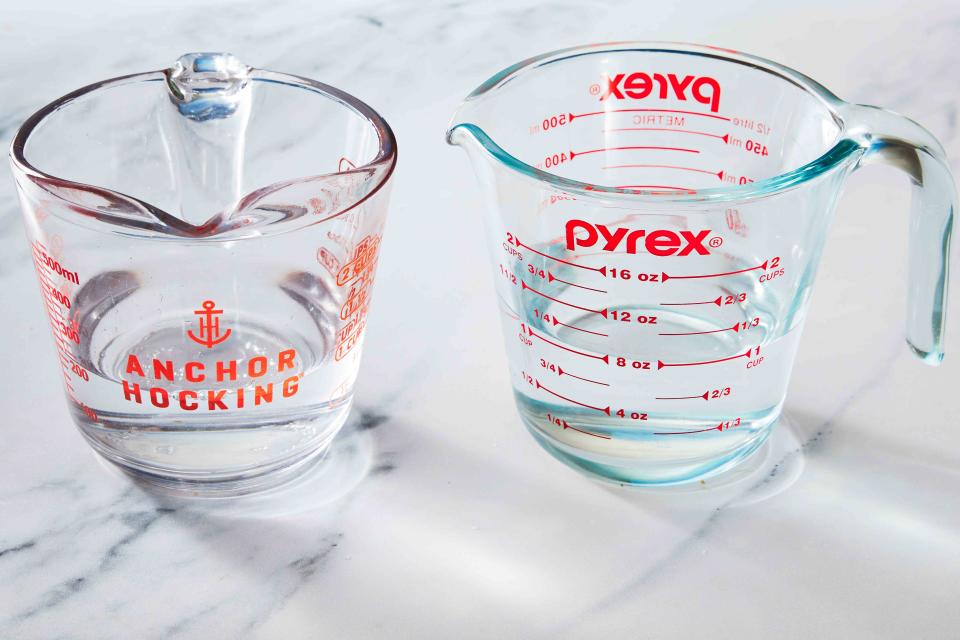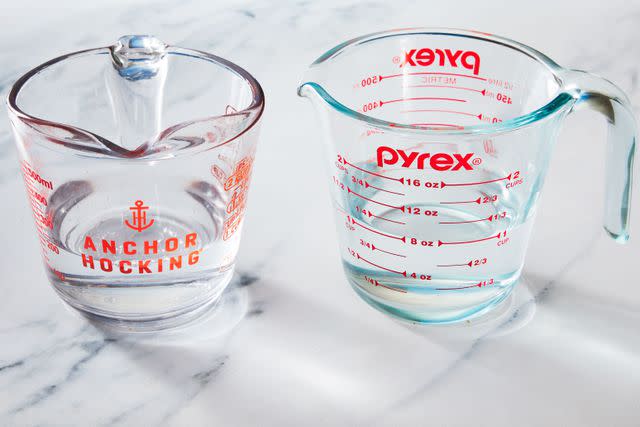Pyrex Vs. Anchor Hocking: Are They Different?
A professional chef breaks down the differences between these beloved glassware brands.

Caitlin Bensel
When trying to pick out quality glass cookware for your kitchen, brands like Pyrex and Anchor Hocking may be top of mind. Both brands have made a name for themselves in the durable, glass cookware market and come with glowing reviews from loyal fans.
It begs the question: What is the difference between Pyrex vs. Anchor Hocking? How do the two brands compare?
Meet The Expert
Chef Francine Marz, Dean of Culinary and Hospitality at Culinary Institute of the South at Technical College of the Lowcountry in South Carolina
Pyrex Vs. Anchor Hocking: What To Know Before You Buy
Chef Francine Marz, the dean of Culinary and Hospitality at Culinary Institute of the South at Technical College of the Lowcountry in South Carolina, tells Southern Living the brands are similar in what they create: glass cookware, bakeware, and kitchen accessories.
"Both are made of the same kind of materials, both companies are over 100 years old, both offer limited warranties on their products, and both companies offer a wide variety of items," she says. "Both are BPA-free and depending on your stance, that could equate to another positive attribute of using glass cooking (and) baking vessels."
Plus, both brands create products using soda-lime glass and can be put into an oven up to 425 degrees Fahrenheit.

Caitlin Bensel
What Is Pyrex?
Founded in New York in 1915, Pyrex was born in New York when Bessie Littleton was seeking a solution to a cracked baking dish. At the time, her husband was working for Corning Glass Works and provided Bessie with a sawed-off glass jar to test for baking. It worked – and the rest is history.
Pyrex produces glass bakeware and cookware, glass storage containers and the iconic glass measuring cups many of us have in our own kitchens.
What Is Anchor Hocking?
Anchor Hocking was founded in 1905 by Isaac Jacob Collins in Ohio. Collins' goal was simple: to make glass bakeware that was accessible. More than 100 years later, the brand has evolved from glass bakeware into other glass products that include food storage, serveware, drinkware, mixing bowls, and more.
Is Glass Good For Baking?
Both brands produce glass bakeware and cookware, but is glass the best option when it comes to cooking and baking?
Marz says glassware in the kitchen is beloved, because it typically bakes evenly every time. Glassware retains heat to keep food warm longer, it doesn’t stain and you can bake, serve, and store all in one dish.
"I think it's fabulous, but it is heavy and It sometimes can be hard to carry around or move," she says. "It doesn’t rust like metal and its easy to clean; however, you have to be careful to make sure that you don’t expose the bakeware to sudden extreme heat changes.
Which Is Better: Pyrex Or Anchor Hocking?
So, which brand takes gold? Marz says that answer is subjective.
"I really think it is personal preference and we tend to use what our parents used in the kitchen," Marz says. "The rituals of baking and cooking stimulate memories, feelings, and emotions, and something as simple as a glass baking dish might not mean anything to one person, but could mean so much to another. Today there are so many knockoff brands that one has to truly be loyal to a brand to keep purchasing it."
Related: 15 Casserole Recipes For Your Next Church Luncheon
For more Southern Living news, make sure to sign up for our newsletter!
Read the original article on Southern Living.

